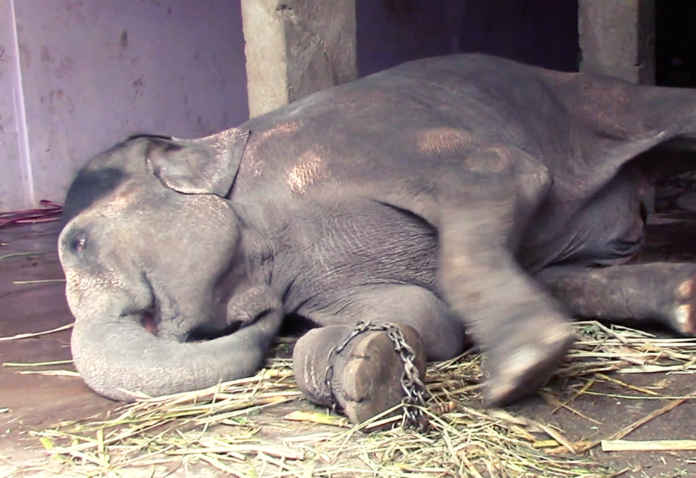With Covid-related restrictions, tourism has been impacted across the world and the resultant economic crisis has caused a further slump in tourist activity. The effect can also be seen in Nepal, where over one million international tourists visit every year.
The current situation in Nepal is not only causing problems to citizens, but is also resulting in unspeakable suffering to animals, especially elephants.
According to an investigation by Animal Recovery Mission (ARM), there has been a surge of illegal trading of elephants in Nepal as the pandemic has reduced the demand for elephants used for riding by visitors from around the globe.
To relieve the financial burden of caring for these gentle giants, their caretakers are selling them illegally to buyers in India putting them at the risk of an endless cycle of abuse and exploitation.
Elephants are being trafficked across international border into India in the middle of the night making it impossible to accurately track how many elephants are alive.
Also Read: Govt Committee Seeks Replacing Elephant Rides With Electric Vehicles at Amer Fort in Jaipur
“We just received confirmation from our operatives on the ground in Nepal that the illegal elephant trade is out of control,” the organisation said. “The Nepal Government signed an agreement to protect and preserve the Asiatic Elephant, and they need to step up now and provide better protection, as it is the elephants who are paying the ultimate price.”
ARM investigators reveal that elephants used in the tourism industry are under constant distress. They are:
- Shackled and Beaten into Submission: Elephants are shackled by 3 – 5-foot-long chains with medieval spikes that tear into their legs and body. They are reprimanded and beaten with sharp bullhooks, causing painful blunt force trauma when they displease their handlers.
- Mentally and Physically Broken: Elephants are subjected to cruel, primitive training practices, over and over, every day until their spirits are broken. As socially complex animals, being separated from their herds also causes them extreme stress and depression.
- Work until Completely Exhausted: Elephants are forced to work for 16 hours a day with up to 900 tourists on their backs and limited access to food and water, and no time to rest.
Asiatic elephants are a critically endangered species and Nepal currently homes the world’s largest population at the Chitwan National Park. In its efforts to preserve and protect the elephants, Nepal committed to stop commercial trade of Asian elephants years ago.
According to an email sent by ARM, the Nepal government “has been informed of the illegal trading going on, but they are turning a blind eye to the criminal activity, and it continues.”
A quarter of all elephants in the area of Chitwan have already been sold to Indian traders in the last three months, and there are no signs of it stopping, the email stated.
The organisation has now started a petition to save these elephants.



